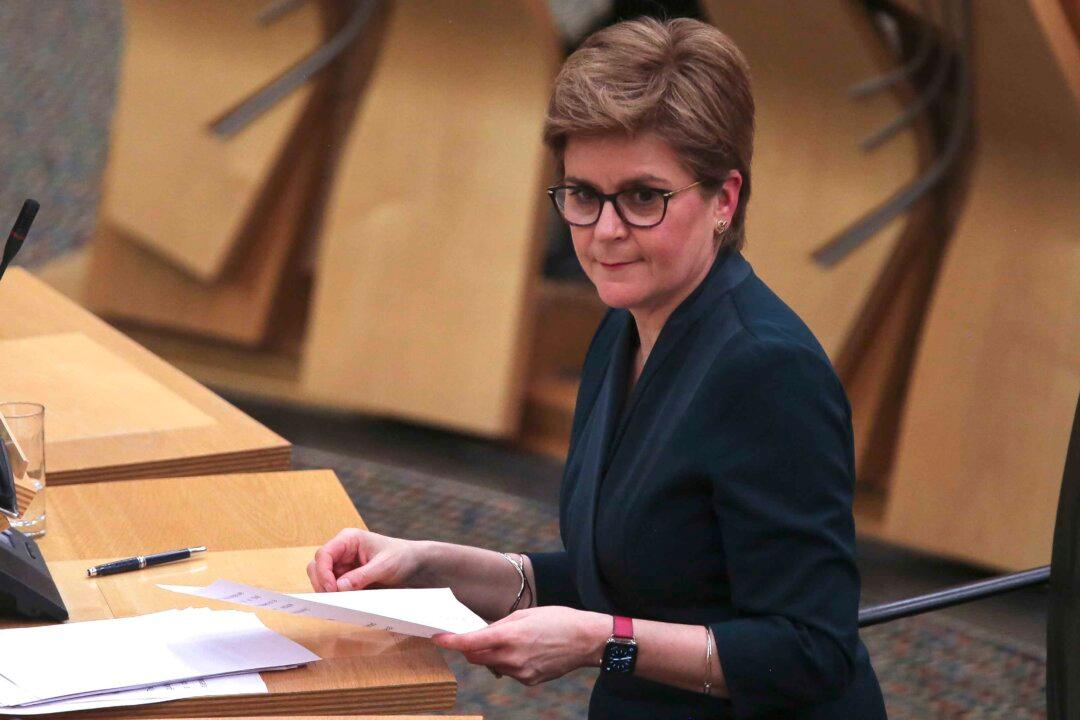Scotland’s stricter COVID-19 restrictions did not prevent its COVID-19 death rates from climbing above those in England during the Delta and Omicron waves, new analysis of official data shows.
In the summer of 2021, after the UK government abolished mask mandates in England, the Scottish National Party (SNP) administration continued to require the use of face coverings in public places.





